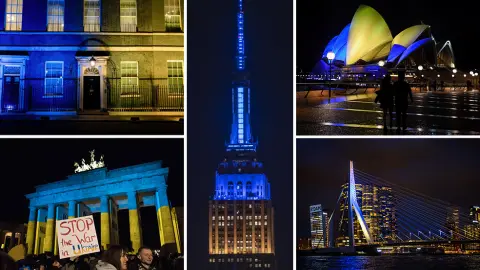UK consumer spending set to fall amid cost of living crunch
Inflation is set to stay above 6% for most of 2022, and that means consumer spending will struggle to avoid a downturn later this year. The Bank of England is still squarely focused on curtailing higher inflation, though we think policymakers will hold off on further hikes once the bank rate reaches 1% in May and growth risks build
Household energy costs set to keep inflation above 6% for much of 2022
The war in Ukraine and the associated spike in energy cost means a growing risk that the UK will enter a consumer spending downturn. It's early days, but we’ve revised downwards our forecasts, and quarterly growth rates are likely to hit zero later this year.
Admittedly the UK economy is less directly exposed to Russian trade flows than much of Europe. While Britain is fairly reliant on Russian metal, coal/coke and fertiliser imports, the overall contribution of Russian value-added to UK domestic demand is around half a percent, compared to an EU average of 1%. And the UK sources relatively little gas from Russia directly, relying instead on domestic production and Norwegian flows.
But Britain is still one of the most dependent countries in Europe on natural gas as a source of energy, in part reflecting the UK’s near-elimination of coal and the growing role of wind/solar. With wholesale prices surging, the energy regulator has announced that the cap on household bills will rise by an average of 54% in April. And based on the level of forward prices, a further 30%+ increase in October is possible when the cap is next updated, even accounting for a £200/household discount from the government.
That, and the parallel rise in petrol and food prices, will likely see inflation peak close to 8% in April and end the year near to 6%.
The UK is dependent on natural gas for energy use, though very little comes from Russia
Consumer spending likely to fall, reducing need for substantial Bank of England tightening
Like the eurozone, it's perhaps too early to say that all of this will trigger an outright recession in the UK economy. Omicron appears to have done little, if any, lasting damage to the recovery, while investment looks set for a strong year. Wage growth is rising quickly by historical standards, while the stock of ‘excess’ savings built through the pandemic sits at 8% of GDP.
However these are more heavily concentrated in higher-income groups that are less likely to cut back spending dramatically in the face of higher inflation, and the government will be under increasing pressure to add further support for those on lower incomes. Consumer confidence is sliding, and our best guess is that household spending falls later this year.
All of this only magnifies the stark trade-off between weaker growth and higher inflation that the Bank of England faces this year. For now policymakers are squarely focused on price pressures, and we still expect another rate rise in both March and May. But that might be more or less it.
Download
Download article
3 March 2022
ING Monthly: The Russia-Ukraine crisis forces a global reassessment This bundle contains 14 articlesThis publication has been prepared by ING solely for information purposes irrespective of a particular user's means, financial situation or investment objectives. The information does not constitute investment recommendation, and nor is it investment, legal or tax advice or an offer or solicitation to purchase or sell any financial instrument. Read more
